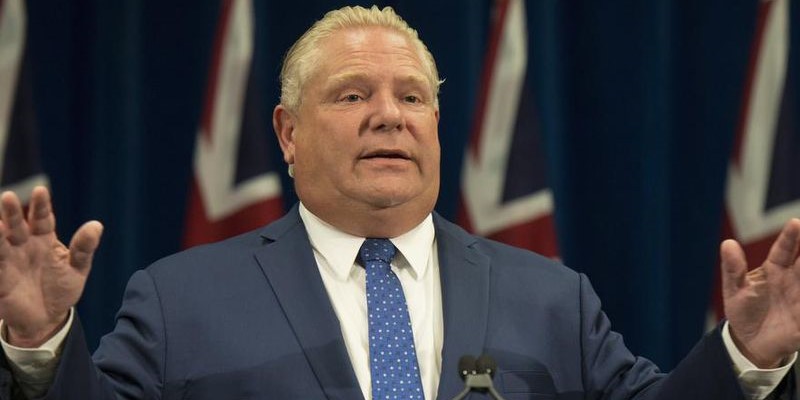Ontario government must break old habits to capitalize on fiscal position

Ontario recently released an updated projection for provincial finances and estimates a relatively small deficit for 2023/24, which bodes well for the province’s anticipated return to budgetary surpluses in the near future. To capitalize on this fiscal position, the Ford government must break old habits and focus on long-term spending restraint.
The report echoed the province’s 2023 budget estimate of a $1.3 billion deficit for the 2023/24 fiscal year. As part of the budget, Ontario also forecasted surpluses of $0.2 billion in 2024/25 and $4.4 billion in 2025/26. While Ontario’s fiscal situation appears somewhat hopeful, the Ford government shouldn’t waste this opportunity by returning the province to deficits by increasing spending.
Provinces have a track record of using budgetary surpluses to increase spending, which can return the province to deficits particularly when revenues decline. This is often an issue in resource-rich provinces such as Alberta and Newfoundland and Labrador, where governments use volatile resource-revenues to fund new or ongoing spending. Yet it’s not limited to these provinces. In the most recent round of budgets many provinces utilized higher-than-expected revenues to increase spending, rather than reduce debt or make meaningful tax reductions.
Ontario was one such province. Total revenues for 2023/24 are expected to be roughly $16.2 billion higher than estimated in Budget 2022, but the Ford government chose to spend away that additional revenue, continuing a trend of spending increases.
Indeed, while the Progressive Conservatives criticized spending under the previous Liberal government, since coming to power the Ford government has increased spending even further, averaging higher annual per-person (adjusted for inflation) spending than the Wynne government did during its tenure. Furthermore, annual growth in per-person inflation-adjusted spending under Premier Ford (2.4 per cent) is roughly six times the rate under Kathleen Wynne (0.4 per cent).
Through current and previous spending increases, the Ford government has proven to have little concern for spending restraint.
If the province is to capitalize on expected surpluses in the coming years, Ontario should use the surpluses to reduce debt and/or introduce long-promised tax relief for Ontarians. Simply put, the province cannot waste this opportunity by wiping out future surpluses via further increases to spending.
Ontario’s net debt (total debt minus financial assets) is currently estimated at $406 billion in 2023/24, or roughly $26,066 per person. This translates to debt interest costs of roughly $14.1 billion, which is more than the province is projected to spend on post-secondary education in 2023/24. Utilizing future surpluses to reduce debt, rather than increase spending, would lower interest costs and reduce the burden on Ontarian taxpayers.
Finally, the province currently maintains relatively high personal income and business tax rates, which are economically harmful because they make it difficult for the province to compete with other regions and countries to attract and retain entrepreneurs, businessowners and professionals. The government could use the surplus to reduce taxes and help spur economic activity, which could bring more revenue for the province and improve living standards for Ontarians through job creation and increased wages.
The benefits of debt reduction and tax relief cannot be realized unless the Ontario government is disciplined with its spending over the long term. If it can break old habits, the Ford government can move the province one step closer towards fiscal sustainability and a stronger economy for Ontarians.
Authors:
Subscribe to the Fraser Institute
Get the latest news from the Fraser Institute on the latest research studies, news and events.


